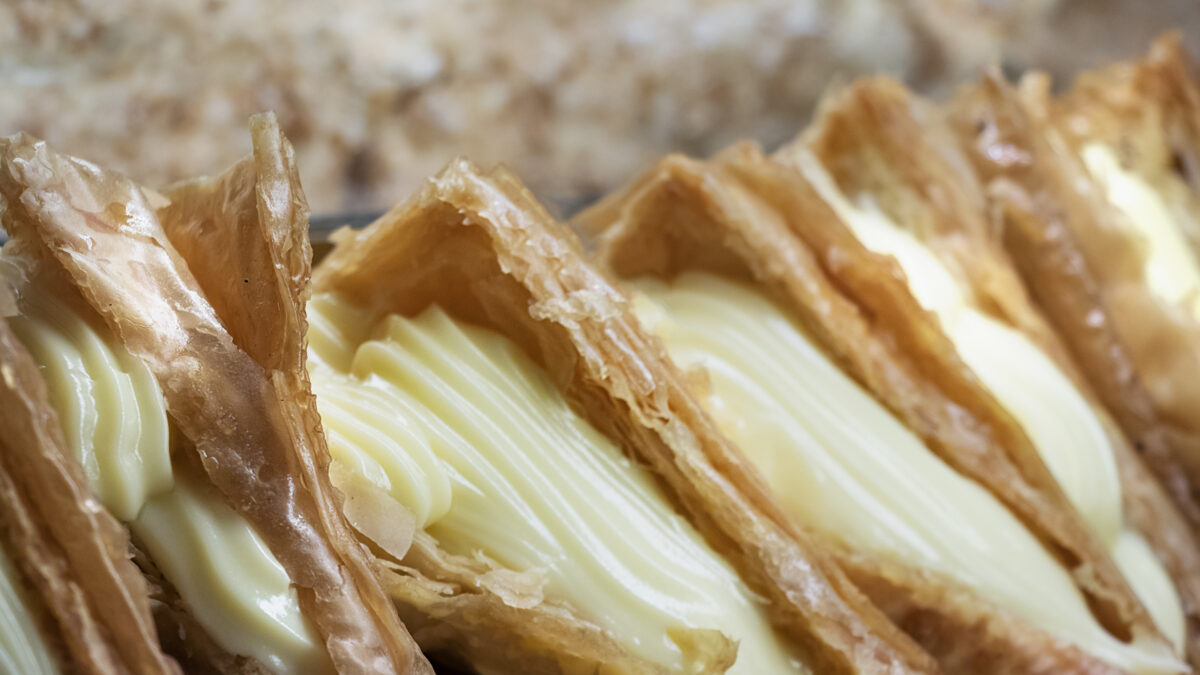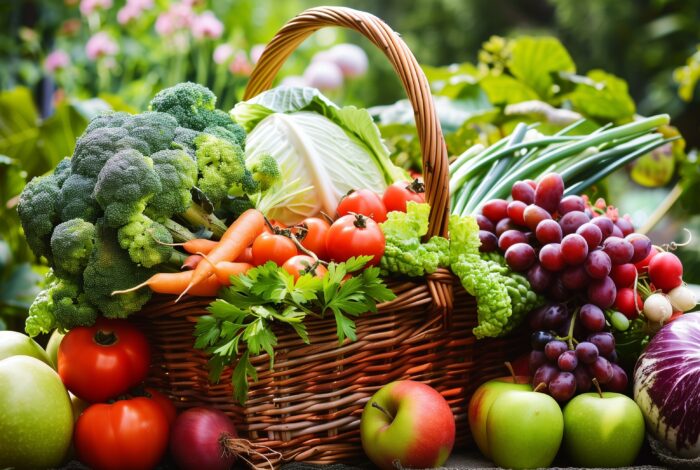Dessert is something people of all ages look forward to at the end of a meal. In Greece, even in times of hardship and great poverty, homemakers found ways to create delicacies with the humblest of ingredients. For many Greeks, spoon sweets kept in the formal living room are a cherished childhood memory.
Religious feast days and celebrations – such as marriages and baptisms – have always been an opportunity to make traditional Greek sweets. At Christmas, homes are filled with the sweet aromas of melomakarona, Greek honey rolls (diples) and kourabiedes, whereas at Easter, tsoureki (Greek sweet bread) and Greek cookies hold a prominent place.
Fanouropita, which is traditionally made to honour Agios Fanourios, is a delicious cake with simple ingredients, symbolising the thoughts and prayers of the faithful for various requests made to the Saint. We may refer to it as a pie, but it looks more like a cake, since it does not have filo pastry. The recipe is simple, consisting of oil, flour and sugar. In different corners of Greece, orange juice, semi-sweet wine and/or aniseed are also added. Every locale has its own version of the recipe.
Of course, there are sweets that are inextricably linked to a certain place. An excellent example of this is Panorama Triangles, which can now be found all over Greece but are strongly associated with Thessaloniki. The gastronomic wealth of Macedonia, Thrace and Epirus is undeniable, but every region has its own sweet ambassadors.
Serres is well known for its bougatsa and its akanes, while Xanthi is famous for its kariokes. Heading south to Thessaly, Farsala halva is characteristic of the area, as is Greek pudding, a type of walnut cake with custard and whipped cream.
The sweets of the Greek islands are rich in flavour and traditions. Syros loukoumi, flavoured with rose petals, rosewater, mastic, bergamot and lemon, has long been renowned. Also in the Cyclades, special mention goes to the watermelon pie made on Milos and Folegandros. Watermelon, sugar, honey and flour are combined in a baking tray and sprinkled with sesame seeds. Once baked, we can enjoy one of the most unique Greek summer sweets.
Submarine, a spoon sweet, can also be considered a summer treat. A spoonful of fragrant vanilla or mastic in ice cold water is enough to cool anyone down in the summer months.
The islands’ traditional almond sweets are offered at weddings and baptisms and are associated with joyful occasions. On Limnos, the renowned local treats “Venizelika” are small fondants that took their name from Eleftherios Venizelos. On Rhodes, melekouni is the island’s traditional sweet and its preparation has remained unchanged over time.
Finally, special mention goes to Greek honey rolls (diples), which make their appearance at every celebration, while in some regions of Greece they are offered at weddings and baptisms. A humble yet iconic sweet that reflects the skill of every homemaker.










